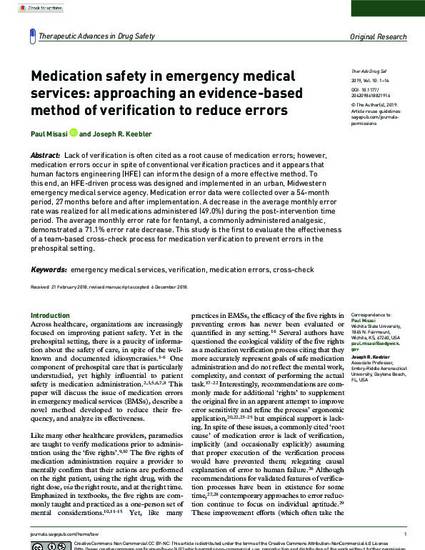
Lack of verification is often cited as a root cause of medication errors; however, medication errors occur in spite of conventional verification practices and it appears that human factors engineering (HFE) can inform the design of a more effective method. To this end, an HFE-driven process was designed and implemented in an urban, Midwestern emergency medical service agency. Medication error data were collected over a 54-month period, 27 months before and after implementation. A decrease in the average monthly error rate was realized for all medications administered (49.0%) during the post-intervention time period. The average monthly error rate for fentanyl, a commonly administered analgesic, demonstrated a 71.1% error rate decrease. This study is the first to evaluate the effectiveness of a team-based cross-check process for medication verification to prevent errors in the prehospital setting.
Available at: http://works.bepress.com/joseph_r_keebler/115/
